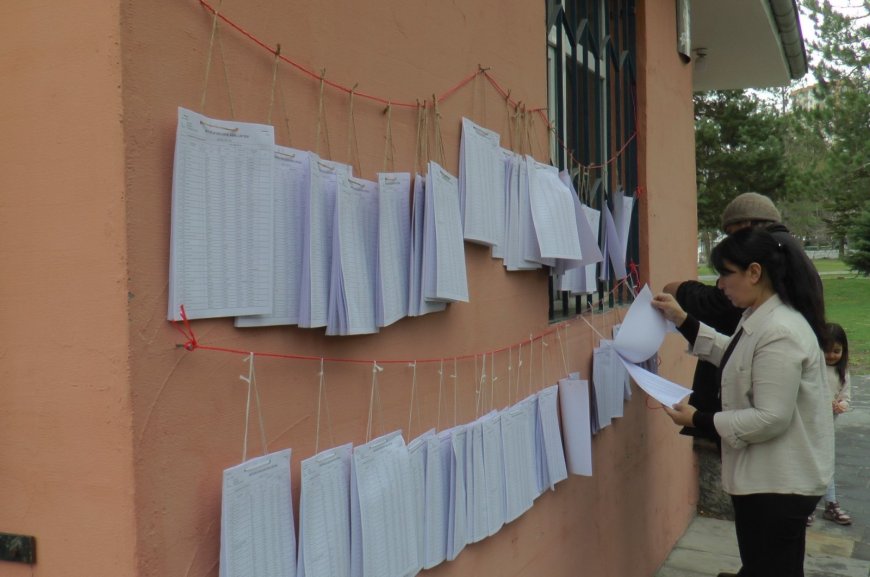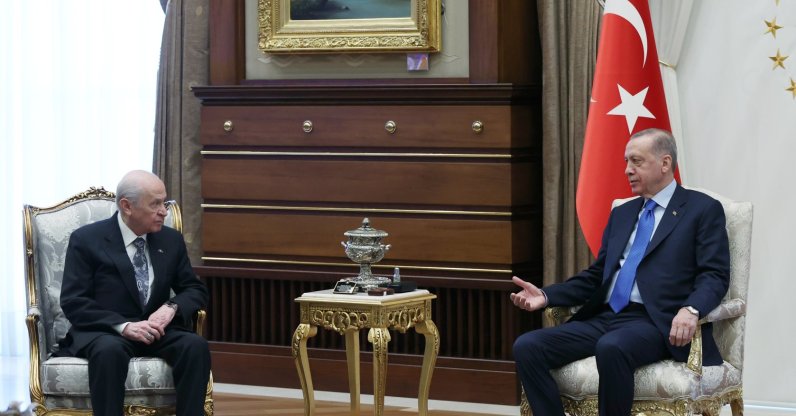Türkiye braces for critical election with landmark changes
Türkiye braces

May 14 elections will be the first time when a series of changes, from a new threshold for parties to overseas voting, will take place while the opposition, with six parties in total, is in its most 'united' form
Presidential and parliamentary elections scheduled for May 14 are unpredictable and unprecedented for Türkiye. Surveys show a clear lead for incumbent President Recep Tayyip Erdoğan, while the opposition claims their candidate Kemal Kılıçdaroğlu is ahead of him. But one thing is clear: It will be the first time that the electorate will witness major changes in the electoral system.
An election threshold of 7% will be applied for the first time in the polls, about one year after a major amendment to the electoral law that decreased the 10% threshold. This means smaller parties will have an opportunity to win parliamentary seats if they gain at least 7% of the nationwide vote by themselves or through the electoral alliance they sided with. The wider representation will allow more parties in Parliament, which long lagged behind main political parties, from the ruling Justice and Development Party (AK Party) to the main opposition Republican People’s Party (CHP).
The electoral law amendment passed in 2022 also changes the calculation of votes of parties that join an alliance. In the 2018 elections, the number of parliamentary candidates of parties in an alliance, who were eligible for parliamentary seats, was calculated based on an overall vote of the alliance. This in turn meant larger parties in the alliance securing more seats. Under the new amendment, the number of seats for each party in an alliance will be based on a valid vote each won in a constituency.
May 14 polls will also mark the first time that visually impaired citizens will be able to vote without assistance. In past elections, they were forced to cast their vote with the aid of next of kin or anyone present at the polling station, raising the controversy that they might be deceived into picking parties they did not vote for. The Supreme Election Council (YSK) would provide special “templates” for visually impaired voters so they can cast their ballots without assistance. Mehmet Emin Demirci, head of the Turkish Federation of the Blind, hails the decision and says visually impaired voters were not able to “reflect their political willfully” in the past.
Last week, Demirci told Anadolu Agency (AA) that many countries in the European Union (EU) use the stencil voting practice for the visually impaired and Türkiye indeed became the 32nd country in Europe to adopt the practice.
For voters abroad, Türkiye will also set up ballot boxes for the first time in 15 countries. Thus, the number of countries where Turks can vote increased to 75 from 60 in the 2018 elections. For the first time, ballot boxes will be sent to Afghanistan, Belarus, Brazil, Estonia, Morocco, Montenegro, South Korea, Libya, Lithuania, Malaysia, Nigeria, Pakistan, Portugal, Slovakia and Tanzania.
The elections were overshadowed by the Feb. 6 earthquakes in Türkiye’s south, which killed more than 48,000 people and left thousands of others homeless. Victims of earthquakes who lost their residence will be eligible to cast their vote in the same constituency while those who relocated to other cities will be able to cast their vote in the cities they moved to.
Turkish voters narrowly endorsed an executive presidency in the April 16, 2017 referendum with 51.4% of the votes in favor. The official transition to the new system took place when Erdoğan took the presidential oath of office in Parliament after the June 24, 2018, general elections, during which he won 52.6% of the votes. The presidential system abolished the prime minister's office and concentrated most powers in the president's hands. The presidential office had been a largely ceremonial post until then.
What's Your Reaction?




















